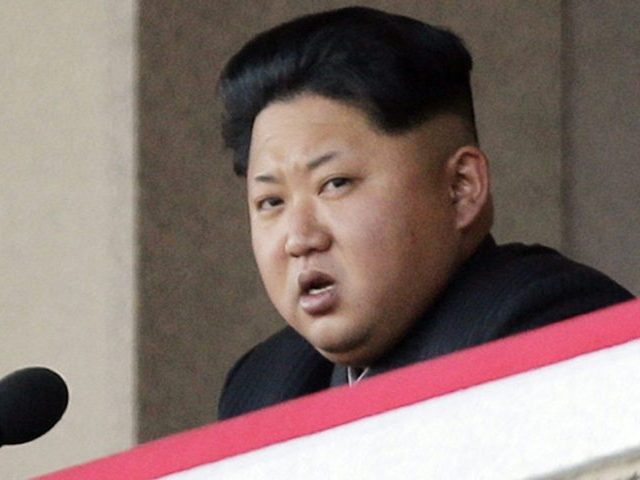WASHINGTON, DC — Senior officials from President Donald Trump’s administration are still considering a “limited,” pre-emptive “bloody nose” military strike against North Korea to demonstrate to Kim Jong-un “American’s resolve and willpower,” according to an expert at the Center for Strategic & International Studies (CSIS) think tank.
Early this month, President Trump allegedly dismissed reports that he is weighing so-called “bloody nose” attacks on North Korea as “completely wrong,” a summary of a phone conversation between the American leader and his South Korean counterpart revealed, according to Reuters.
Following the president’s denial, U.S. Secretary of State Rex Tillerson warned of military action against North Korea if it does not give up its nuclear weapons, prompting criticism from Democrats in Congress.
“We have to recognize that the threat is growing and that if North Korea does not choose the pathway of engagement, discussion, negotiation then they themselves will trigger an option,” declared Tillerson this month in the wake of a meeting of U.S. allies on how to ramp up the sanctions pressure.
Lindsey Graham (R-SC), a member of the Senate Armed Services Committee, noted that he was “100 percent confident” the commander-in-chief would only go to war against North Korea as a “last resort.”
Nevertheless, the Republican senator acknowledged that Kim’s quest for a nuclear weapon is increasing the potential for confrontation.
Tensions between the United States and North Korea have escalated since President Trump took office in response to Kim’s repeated tests of intercontinental ballistic missiles (ICBM) likely capable of reaching American soil.
During a discussion hosted by the Center for Strategic and International Studies (CSIS) Wednesday, titled “Asia Forecast 2018,” Michael Green, the senior vice president for Asia and Japan at CSIS and director for Asian studies at Georgetown University who moderated the discussion, noted:
I think in terms of prediction the [Trump] administration probably will move towards a robust containment strategy, but the reality right now is there’s very active talks … from very senior people in the administration particularly in the White House about using a military strike perhaps not a massive strike—[but rather] what people call a bloody nose [strike] to demonstrate to the North Koreans Americans’ resolve and willpower.
Members of the CSIS panel disagreed with the need of a”bloody nose” strike as a show of force.
Panelist Zack Cooper, a senior fellow for Asian security at CSIS, expressed major reservations about any preemptive U.S. strike, saying America must either deter Kim with a major military operation involving ground troops or not at all.
“You have two options—either you think that the Kim regime is deterrable or you don’t. If you think they’re deterrable, then deter them right. There’s not necessarily a need for a strike. If you don’t think they’re deterrable, then the ‘bloody nose’ strike is probably going to result in a very nasty response,” Cooper said, adding:
You might as well not do the bloody nose strike but a full on coventional military strike. To me the ‘bloody nose’ strike doesn’t make much logical sense. I think the United States miitary is predisposed … to do a very very large military operation … [involving] hundreds of thousands of troops largely ground troops and we just haven’t seen those movements and so I’m largely skeptical we’ll see that in the year ahead.
The other panel members—Bonnie Glaser, the senior adviser for Asia and director of the China Power Project at CSIS, and Sue Mi Terry, a senior fellow the Korea chair at CSIS—agreed with Cooper.
Throughout last year, North Korea tested ICBMs believed to be able to carry a nuclear load and target the United States and its allies.
The missile tests sparked a war of words between President Trump and dictator Kim.
During the panel discussion, CSIS surveyed attendees about what they think the outcome of the North Korean Peninsula tensions will be this year.
Most of the audience, nearly 70 percent, anticipated an “increase” of tensions “due to additional North Korean tests and provocations.”
About 20 percent of respondents envisioned tensions would remain the same; seven percent predicted tensions would “subside due to a North-South rapprochement”; and only two percent believed the situation would “decrease due to a China-U.S. understanding.”
Of nearly 112 respondents, only six percent said the situation would “explode in a major conflict due to a U.S. military strike.”
Referring to the six percent, Green said, “That doesn’t necessarily mean that people think there won’t be a U.S. military strike. People may think there will be a U.S. military strike and it will be contained.”

COMMENTS
Please let us know if you're having issues with commenting.